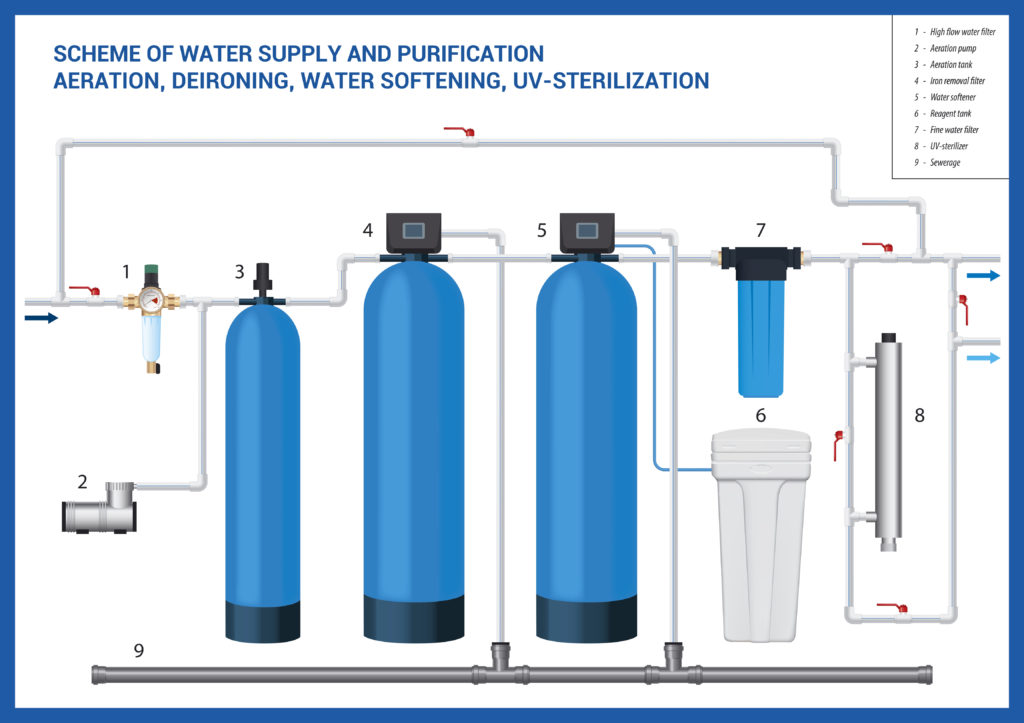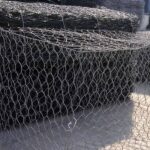Whether water is hard or soft is distinguished by the mineral content of calcium and magnesium. Sometimes it’s hard to tell from the mere taste of water or how it feels on your skin when you bathe. Here’s a look at what the terms hard and soft water means:
Hard Water
Water can collect minuscule particles as it moves from its source to your taps. The source may be mountain streams, dams, and rivers. Moreover, the more minerals it carries along the way, the harder it becomes. These mineral particles include calcium and magnesium and are more significant when held in high quantities.
Soft Water
This water is free from calcium and magnesium and can be purified through water softener systems. Additionally, this is what most people have running through their taps. Soft water is generally preferred more as it’s easier to use.
Chances are you don’t spend much time wondering what kind of water you are drinking, bathing with, or washing with. However, there is a significant difference between these two types of water. Here’s some insight on how to tell hard and soft water apart:
Water Taste
Hard water has high mineral content and is generally thought to taste unpleasant. Soft water may be tasteless and preferable to drink because it lacks hard water’s minerals. However, water may taste salty if it’s softened through the filtration system or using chemicals.
Spots And Residue
There’s hardly any residue left when you bathe, clean, or wash with soft water. However, hard water leaves white-ish marks on your body when you cleanse, plates when you clean, and clothes when you wash. In other words, it leaves residue on anything it touches.
The spots can also be seen on silverware and glasses when you wash them either by hand or using a dishwasher. This makes hard water unpleasant for most to use as it may mean extra work trying to get rid of the residue.
When you use hard water, your clothes are likely to wear out faster due to the residue it leaves behind. This is because the minerals in hard water create a detergent curd when it contacts soap. This curd sticks to the clothes and draws in more dirt. Your clothes may appear dirtier than before you washed them, which will lead to you washing them too often.
You may also feel a certain firmness in your hands when you wash with hard water that you will not get from soft water. This is because the calcium in hard water reacts with soap and, as a result, forms soap scum.

Water Flow
Water flow may be affected when you use hard water. The minerals collected in hard water can stick to the pipes causing the diameter to shrink. As a result, water from your taps may not come out with as much pressure.
However, this may be more of a concern to people with old homes whose pipes were built with galvanized steel. Galvanized steel is more likely to be clogged up by excessive minerals in hard water. Hence, those with modern homes hardly have anything to worry about.
This is unlike soft water, which is purified of calcium and magnesium and does not leave any residue behind.
Skin And Hair
If you regularly wash your hair with hard water, your scalp may feel itchy. It can also cause dry skin and hair. If you have eczema, it may be wise to avoid using hard water to bathe. This is because the minerals hard water carries may change your pH balance.
When your pH balance is affected, it may be weakened and, as a result, lose its ability to shield you from harmful infections and/or bacteria.
The reverse is true for soft water. It does not contain any minerals that may pose a threat to your skin and hair health. Soft water only contains de-ionized salts often as a result of water treatment.
However, soft water can flatten your hair or give it a greasy feel. But in any case, it’s less damaging than hard water.
Mineral Intake
Too much of anything is usually not good. Added minerals may sometimes be good for your body, but they may be a health hazard if their quantities are too high. On the other hand, too much magnesium may sometimes cause diarrhea, which is the same effect as a laxative. Soft water hardly poses this risk.
Conclusion
You may believe that soft water is better than hard water, but they are both clean. However, hard water has minerals that may leave a residue when bathed, washed, or cleaned. Soft water is easier to clean and wash with as it leaves no residue.






